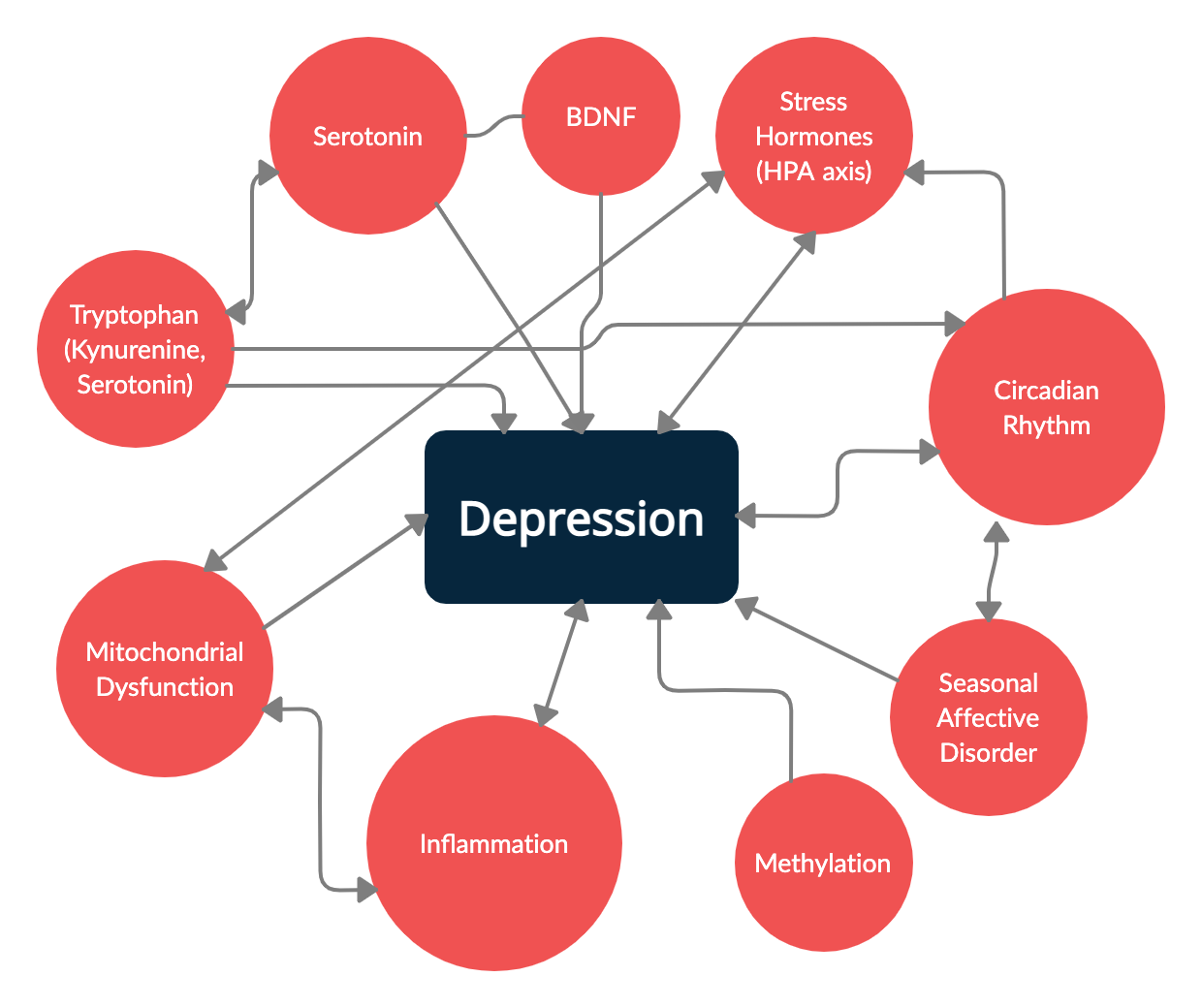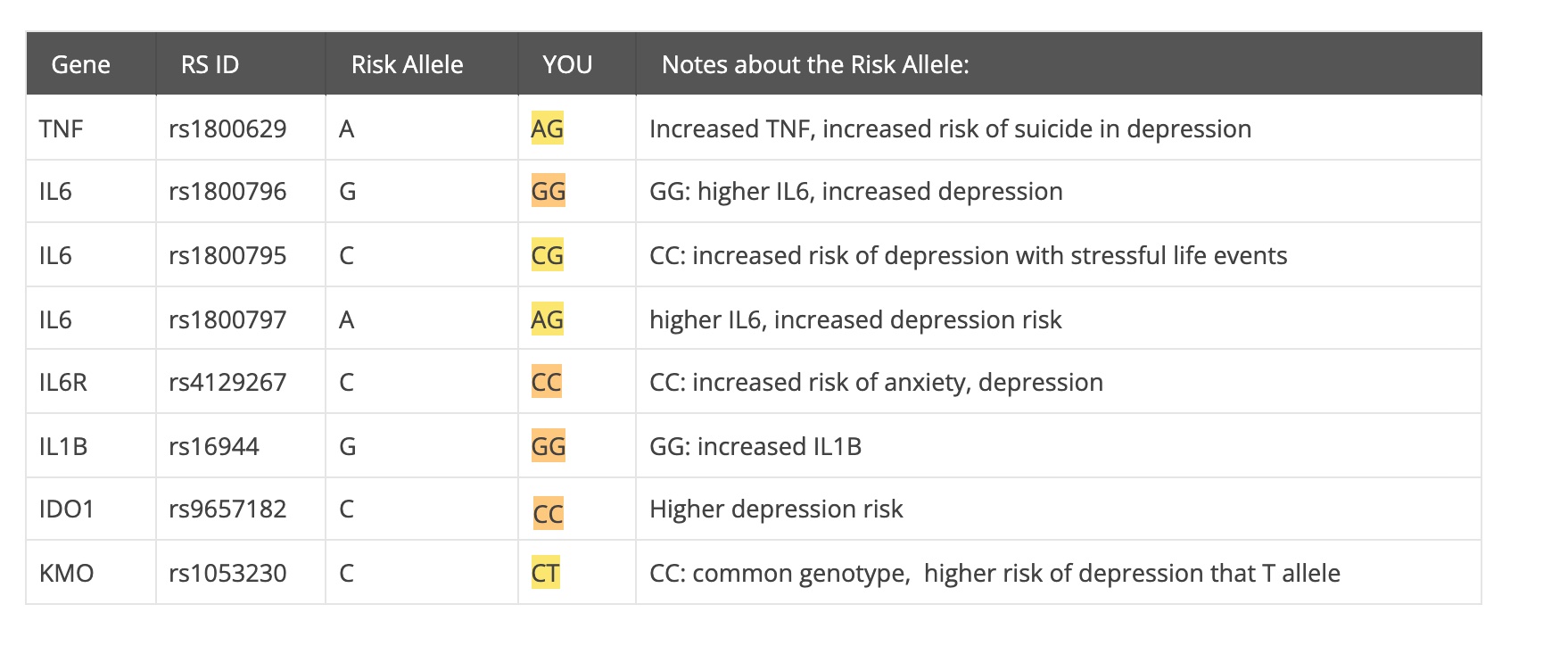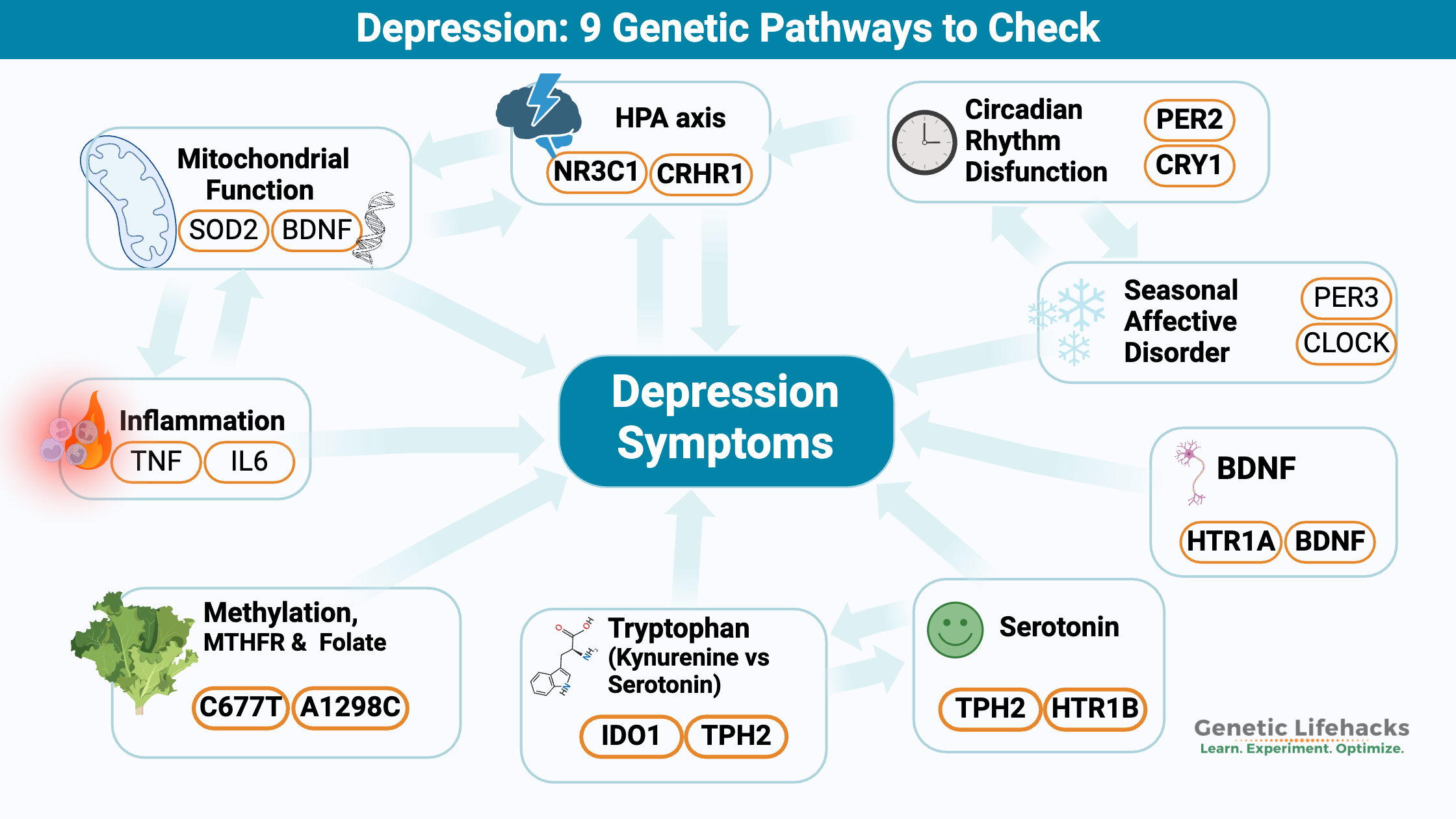Key takeaways:
~ When it comes to depression, there’s no one-size-fits-all answer.
~ Genetic factors, life events, and environmental factors can all play a role.
~ Understanding how your genes interact with your risk for depression, along with environmental factors, may help you find the right solution for you.
My goal here is to simplify your task of sorting through genetic data to target the right cause(s) of depression for you.
Members will see their genotype report below and the solutions in the Lifehacks section. Consider joining today.Depression: 9 genetic pathways to check
There are multiple underlying physiological pathways involved in depression, and understanding your genetic susceptibility is:
- the place to start researching, learning about solutions
- a targeted way to make diet or supplement changes
- a starting point for talking with your doctor
First, a couple of caveats here:
- It’s important to keep in mind that your genetic raw data only shows part of your genome (23andMe, AncestryDNA).
- Genetics is only part of the picture. Your genes interact with your lifestyle, diet, abuse, chronic disease, etc — all coming together to change your neurotransmitters.
Can depression be genetic?
Genetics plays a role in depression for everyone, but there are multiple pathways that can cause the physiological changes that cause someone to feel depressed.
I’ve gone in-depth on all of these genetic causes in separate articles (links below). In this overview article, you’ll be able to hone in on which of these root causes to target.
- Depression, genetics, and mitochondrial function
- Inflammation as a cause of depression
- Serotonin: How your genes affect this neurotransmitter
- Depression, Genetics, and Circadian Rhythm
- Tryptophan Genes: Serotonin, Melatonin, and Kynurenine
- MTHFR and Depression
- The Interaction Between BDNF and Serotonin
- Genetics of Seasonal Affective Disorder
- HPA Axis Dysfunction: Cortisol and Stress
What do I mean by underlying or root causes?
Recent research shows that for people with long-term psychiatric illnesses, such as major depressive disorder, bipolar disorder, or schizophrenia, there are structural changes that take place in the brain.[ref] However, the underlying trigger or cause isn’t the same for everyone. As you can see, genetics points to a number of root causes of depression. Some of these overlap and interact, so there isn’t necessarily a single genetic cause for one person.
Here’s one way to look at the interconnected root causes of depression:

Pinpointing depression’s root cause: How to use your data
If you have several variants highlighted in the articles below, this could indicate a physiological link to depression for you.
Most people will have one or two variants in the topics below because many of the variants are fairly common. So what you are looking for is a pattern of multiple variants, all pointing to the same cause.
Example case study:
If your Inflammation and Depression results show multiple risk alleles highlighted:

Steps to take:
- Read through the article on inflammation and depression.
- Look for sources of chronic inflammation, such as eating junk food or exposure to toxicants. Then clean up your diet and your environment.
- Read through the Lifehacks section for suggestions on how to decrease inflammation specific to your genetic variants.
- Before implementing any supplement options, be sure to check with your doctor or pharmacist if you are on any medications.
Depression Genotype Report: 9 Causes
Access this content:
An active subscription is required to access this content.

